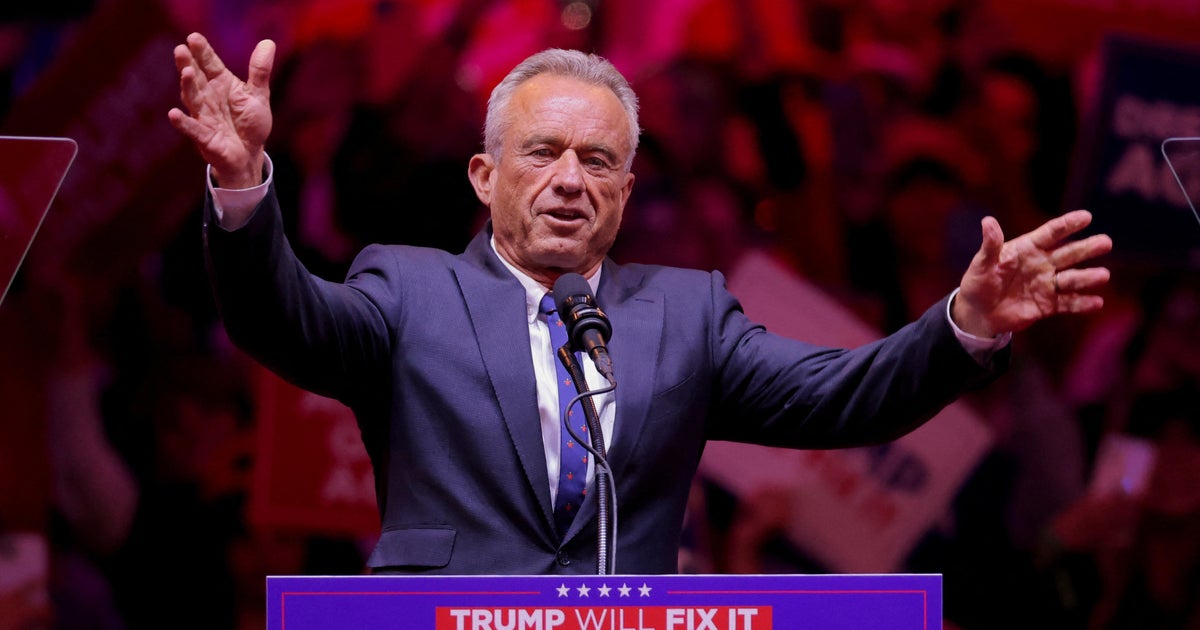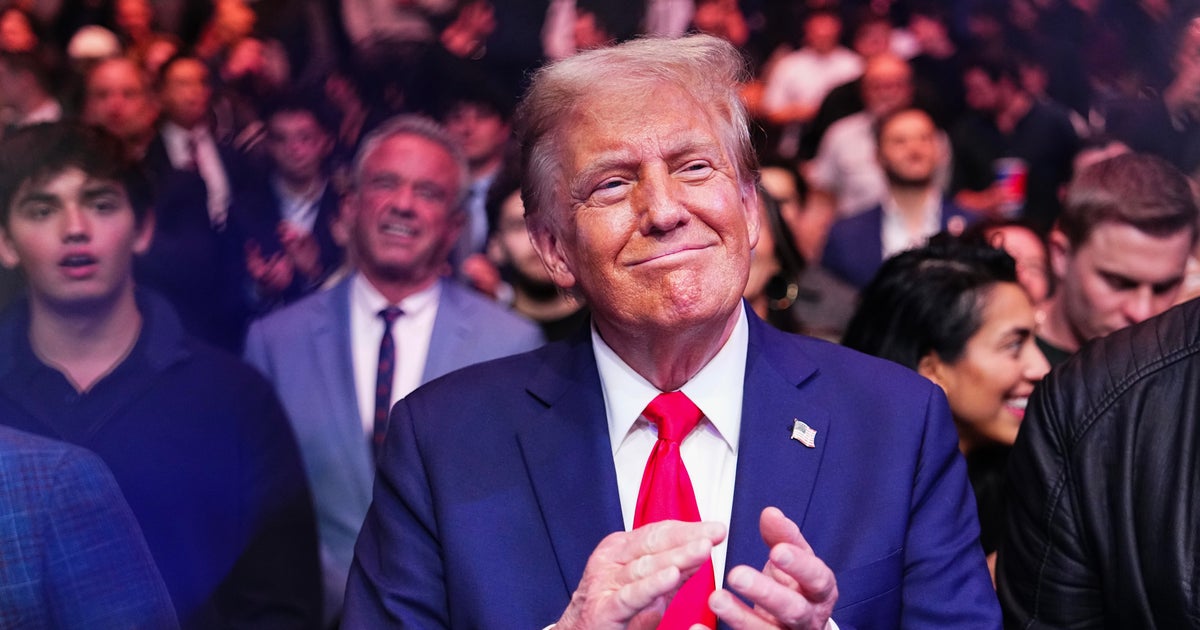NCAA and college athletes face off at Supreme Court in high-stakes matchup
Washington — A high-stakes legal battle pitting the NCAA against Division I college athletes played out before the Supreme Court on Wednesday, as the justices wrestled with whether to allow limits on compensation for student-athletes in a case that could decide the reach of the NCAA's authority to restrict payments to players.
The roughly 90 minutes of oral arguments in the dispute, led by Shawne Alston, a former running back at the University of West Virginia, took place against the backdrop of March Madness, the lucrative men's basketball tournament that generated nearly $865 million in net income for the NCAA in 2019.
Throughout the tournament, players have voiced their opposition to the NCAA's restrictions on compensation for student-athletes with shirts that say "#NotNCAAProperty." CBS has a multi-billion-dollar deal with the NCAA to broadcast the tournament.
The dispute before the Supreme Court is the first involving antitrust laws and the billion-dollar NCAA to land before the justices in decades. While a separate fight over whether athletes can be compensated for use of their name, image and likeness is playing out in state legislatures, the case heard by the justices Wednesday centers around whether NCAA rules limiting certain academic-related benefits for student-athletes violate federal antitrust laws.
A lower court last year ruled the NCAA could not limit education-related benefits, such as post-graduate scholarships, internships, computers and science equipment, to student-athletes.
But Seth Waxman, who argued on behalf of the NCAA, told the Supreme Court that those perks are "akin to professional salaries" and allowing them to flow to student-athletes blurs the distinction between amateur and professional sports. Waxman particularly raised concerns with permitting student-athletes to be paid for internships, which he said would allow them to rake in large sums of money.
"This is the one and only case in the history of the Sherman Act ever to strike down restraints that are what differentiates the product," he said, referring to the Sherman Antitrust Act of 1890.
Several of the justices raised concerns with the NCAA's amateurism model, in which student-athletes, particularly for the football and basketball programs, make their universities millions of dollars yet are not eligible to receive financial compensation.
"The briefs that are submitted in support of the respondents paint a pretty stark picture, and they argue that colleges with powerhouse football and basketball programs are really exploiting the students that they recruit," Justice Samuel Alito told Waxman. "They have programs that bring in billions of dollars. As Justice Thomas mentioned, this money funds enormous salaries for coaches and others in huge athletic departments, but the athletes themselves have a pretty hard life.
"They face training requirements that leave little time or energy for study, constant pressure to put sports above study, pressure to drop out of hard majors and hard classes, really shockingly low graduation rates, only a tiny percentage ever go on to make any money in professional sports. So, the argument is they are recruited, they're used up and then they're cast aside, without even a college degree. So they say, 'How can this be defended in the name of amateurism?'"
Justice Elena Kagan, meanwhile, said Waxman's characterization of amateurism is "high-minded," and suggested the schools are effectively working together through the NCAA to fix athletic salaries at "extremely low levels, far lower than what the market would set if it were allowed to operate."
"You can only ride on the history I think for so long," she said after Waxman noted the NCAA's 115-year history. "A great deal has changed since 100 years ago in the way that student-athletes are treated."
The NCAA has long relied on a 1984 Supreme Court ruling to justify its amateurism framework. While the court found the organization violated the Sherman Act with its plan for television rights for college football games, it also said the "NCAA plays a critical role in the maintenance of a revered tradition of amateurism in college sports" and that it "needs ample latitude to play that role."
But Kagan contended a "great deal" has changed since the decision in that case, NCAA v. Board of Regents of the University of Oklahoma.
"It doesn't move me all that much that there is a history to this if what is going on now is competitors as to labor are combining to fix prices," she said.
Justice Brett Kavanaugh told Waxman he believes antitrust laws "should not be a cover for exploitation of the student athletes. That is an overarching concern here."
"It does seem, as Justice Kagan and Justice Gorsuch suggested, Justice Alito, the schools are conspiring with competitors, agreeing with competitors, I'll say that, to pay no salaries to the workers who are making the schools billions of dollars on the theory that consumers want the schools to pay their workers nothing," he said. "That just seems entirely circular and even somewhat disturbing."
Jeffrey Kessler, who argued on behalf of the athletes suing the NCAA and 11 athletic conferences, told the justices the NCAA's argument in favor of the caps on education-relation benefits is "just the latest iteration of the repeatedly debunked claim that compensation would destroy demand for college sports and that the NCAA should have a judicially created antitrust exemption because of an imaginary revered tradition."
The Justice Department is siding with the student-athletes in the matchup.
Still, several members of the Supreme Court warned a decision affirming the lower court could lead to a floodgate of cases challenging NCAA restrictions on compensation for student-athletes that are designed to protect amateur athletic competition as the landscape and public opinion changes.
"It's like a game of Jenga," Chief Justice John Roberts said. "You've got this nice, solid block that protects the sort of product the schools want to provide, and you pull out one log and then another and everything is fine, and then another and another. And all of a sudden the whole thing comes crashing down."
Justices Stephen Breyer and Sonia Sotomayor, too, raised concerns that allowing courts to regulate the NCAA's rules could ruin the nature of amateur collegiate sports.
"This is not an ordinary product. This is an effort to bring into the world something that has brought joy and all kinds of things to millions and millions of people, and it's only partly economic," Breyer said. "I worry a lot about judges getting into the business of deciding how amateur sports should be run."
A decision from the justices is expected this summer.



